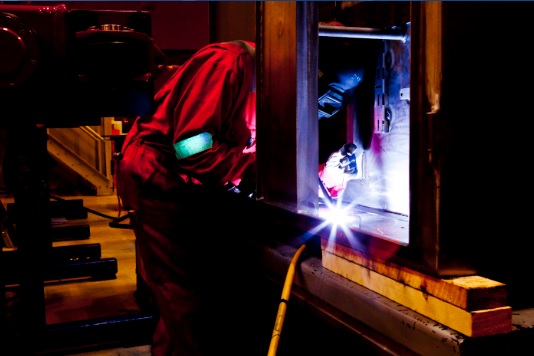Influx of robots has “no aggregate effect” on German employment levels

Rapid advancements in technology and industrial robots in recent years have caused concerns about job automation and widespread unemployment. However, despite the number of robots in Germany quadrupling over the past 20 years, a recent report has found that the total number of jobs in the German economy has not been impacted.
The threat of automation is a significant issue for the global labor market, and low-skilled employment in particular. World Bank president Jim Yong Kim commented yesterday that the world is on a “crash course” toward conflict caused by robots eliminating millions of jobs.
Germany has the highest concentration of industrial robots outside of Asia, with 7.6 robots per thousand workers compared to 2.7 in the rest of Europe and 1.6 in the US. However, while researchers reporting on 20 years of German employment data found significant shifts in career dynamics, the effects on overall employment are “close to zero.”
The study shows that manufacturing workers are not being fired in favor of robots, but there are progressively “fewer jobs for entrants … so in a sense the robots block the entry into manufacturing jobs.” In turn, there has been an increase in the proportion of workers entering the labor market in service roles.
One of the key reasons highlighted by the report for the steady employment figures is the strength of German manufacturing unions. The influence of these unions has helped to secure jobs, but wages for low- and medium-skilled workers have declined significantly and wage inequality is on the rise.
Michael Gibbs has written on technology and changing job design for IZA World of Labor, and warns that robots can cause “polarization” of the labor market by “‘hollowing out’ demand for middle-skill jobs, and increasing wage inequality.”
Gibbs suggests introducing policies that “enable people and firms to more flexibly and creatively realize ICT’s potential to enrich careers and improve work–life balance. They would increase productivity and should encourage innovation.”
Read more articles from IZA World of Labor on the future of work.
Contact our science and innovation spokesperson, Richard B. Freeman.